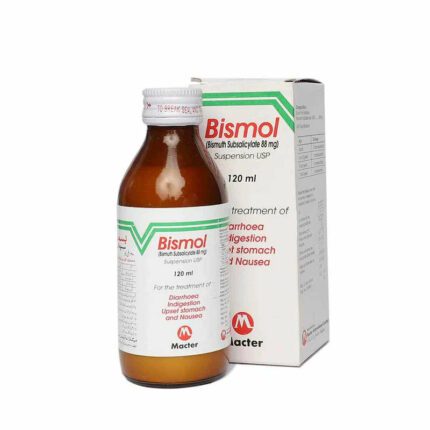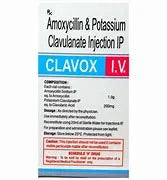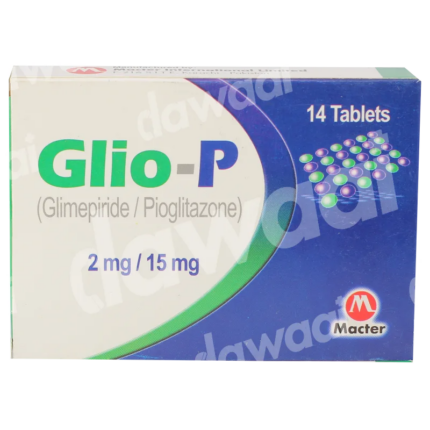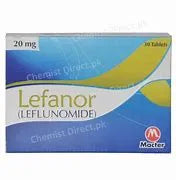Drug Description:
Plaquin-H contains Hydroxychloroquine Sulphate as the active ingredient, primarily used as an antimalarial and immunomodulatory agent. It is a derivative of chloroquine and is commonly prescribed for treating autoimmune diseases like rheumatoid arthritis and systemic lupus erythematosus (SLE), as well as for the prevention and treatment of malaria.
Indications:
Plaquin-H is indicated for the following:
-
Rheumatoid arthritis: To manage symptoms and inflammation.
-
Systemic lupus erythematosus (SLE): To control disease activity and prevent flare-ups.
-
Malaria: For the prevention and treatment of malaria caused by Plasmodium species.
-
Immunomodulatory: Used to modulate immune system function in autoimmune conditions.
Dosage Form:
-
Tablet: Each tablet contains 200 mg of Hydroxychloroquine Sulphate.
Dosage:
-
Rheumatoid Arthritis:
-
Initial dose: 400-600 mg/day (divided doses), followed by a maintenance dose of 200-400 mg/day.
-
-
Systemic Lupus Erythematosus (SLE):
-
Similar dosing as for rheumatoid arthritis (400-600 mg/day initially, then 200-400 mg/day for maintenance).
-
-
Malaria:
-
For prevention: 400 mg weekly, starting 1-2 weeks before travel and continuing for 4 weeks after exposure.
-
Note: Always follow the prescribed dosage by your healthcare provider as it may vary based on the individual’s condition.
Side Effects:
-
Common:
-
Headache, dizziness.
-
Nausea, vomiting.
-
Stomach pain.
-
Loss of appetite, weight loss.
-
Nervousness, irritability.
-
Skin rash, itching.
-
Hair loss.
-
-
Serious:
-
Vision changes (retinal toxicity), heart problems, severe allergic reactions (rash, difficulty breathing, swelling of face or throat).
-
Precautions & Warnings:
-
Muscle Weakness: If you experience muscle weakness, pain, or tenderness, contact your doctor immediately.
-
Mental Health Effects: Hydroxychloroquine may cause mood changes, agitation, irritability, or suicidal thoughts. Monitor for any mental health symptoms.
-
Eye Exams: Hydroxychloroquine may cause retinal damage with long-term use; regular eye exams are recommended.
-
Liver or Kidney Disease: Use with caution in patients with liver or kidney problems. Dose adjustments may be required.
-
Pregnancy and Breastfeeding: Use during pregnancy only if clearly needed. Hydroxychloroquine may pass into breast milk.
Drug Interactions:
-
Antacids: May reduce absorption of hydroxychloroquine.
-
Corticosteroids: May increase the risk of side effects, particularly on the eyes.
-
Digoxin: Hydroxychloroquine may enhance the effects of digoxin, increasing the risk of toxicity.
-
Other Antimalarial Drugs: Combining with other antimalarial drugs may increase risk of adverse effects.
Contraindications:
-
Hypersensitivity: Contraindicated in patients allergic to hydroxychloroquine or similar compounds (e.g., chloroquine).
-
Retinal Disease: Contraindicated in patients with pre-existing retinal or visual disturbances.
-
Porphyria: Contraindicated in patients with porphyria.
Pregnancy Category:
Category C – Hydroxychloroquine should be used during pregnancy only if the potential benefit justifies the potential risk to the fetus.
Storage:
-
Store at room temperature (20°C to 25°C / 68°F to 77°F).
-
Keep in a dry place, away from light.
How Supplied:
-
Plaquin-H Tablets: Each tablet contains 200 mg of Hydroxychloroquine Sulphate.
-
Available in bottles or blister packs.
Doctor’s Overview — Dr. Hina Qureshi, MBBS, FCPS
Plaquin-H effectively manages autoimmune conditions like rheumatoid arthritis and lupus. However, long-term use requires monitoring for side effects, especially vision and mood changes. Regular check-ups are recommended to ensure safe use.
Medical Disclaimer:
This information is provided for educational purposes only and is not a prescription. Always consult a healthcare provider for proper diagnosis, dosage, and treatment.









Reviews
There are no reviews yet.